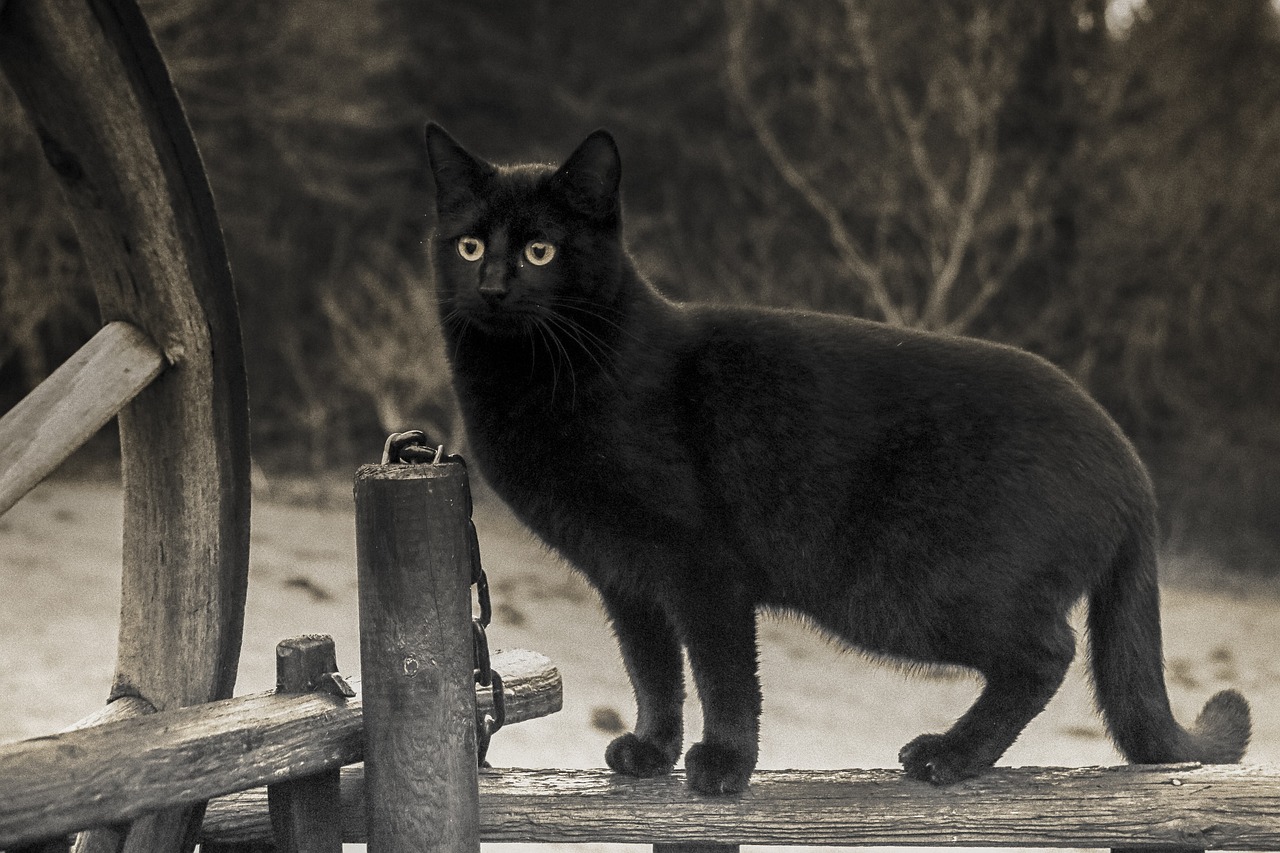
Yes Im back in a coffee shop, Im trying to kick start my book, getting no inspiration, then I realised I was randomly skipping pages with a five in it! I know, so weird what? ……but I connect the number 5 with my trauma in childhood . Five was an important number to me back then …who knows why ? It got me thinking perhaps Im not the only one who has superstitions that they use to try to control their anxiety . I think its worth a look into …
The intricate relationship between anxiety and superstition is a compelling topic that has garnered significant attention in psychological research. Superstitions often serve as coping mechanisms for individuals grappling with anxiety, offering a semblance of control over uncertain situations. This blog post delves into the psychological underpinnings of this relationship, supported by empirical research, and provides actionable strategies for anxiety sufferers to overcome their reliance on superstitions. Wow I just read that back and it sounds a bit more serious in tone to my usual ramblings …Ill try to continue in this tone …see where it takes me !
The Psychological Mechanisms
here are so maSuperstitions are deeply rooted in human psychology, often emerging as a response to anxiety and uncertainty. Research indicates a positive correlation between superstitions and anxiety, with individuals turning to superstitious beliefs to mitigate feelings of helplessness when faced with uncontrollable outcomes[1][2]. For instance, the belief in lucky charms or rituals can enhance perceived self-efficacy, thereby temporarily alleviating anxiety[2]. This phenomenon is clear in various cultural practices, like the avoidance of the number 13 or the belief in the luck part of the colour red in China[2]. You must have seen films set in the middle ages where the local villagers had superstitions, for example, that touching a man before they were executed was good luck. ‘Bless you’ was said after someone sneezed as it was thought that Satan would enter the body of someone who sneezed, it was a way in. There are so many, knocking on wood, broken mirrors, Friday the 13th, throwing salt over your shoulder…the list goes on.
Recently (2024) an article in APA PsycArticles by Caspi, Shmuel, and Chajut looked at 1014 individuals and reported that actually very few showed a total lack of superstition. The majority were half believers, it also showed that anxiety was indeed part of practicing and believing in superstitions , this became stronger in stressful situations. Anxiety sufferers were more likely to follow negative rather than positive superstitions .
Empirical Evidence
Several studies have explored the link between superstition and anxiety. A study involving Singaporean psychology undergraduates found that superstitious thinking influences perceived task performance, particularly under stress-inducing conditions[3]. Participants who used a ‘lucky’ pen reported lower anxiety levels and improved performance, highlighting the psychological comfort derived from superstitions.
Moreover, research has shown that individuals with higher levels of superstition also report greater anxiety, depression, and stress[5]. This correlation is particularly pronounced in women, who tend to show higher levels of both superstition and anxiety symptoms[5]. These findings suggest that superstitions serve as a maladaptive coping strategy for managing anxiety and related psychopathological disorders.
Should We worry about Superstitions ?

Superstitions can have both short-term and long-term effects on mental well-being, particularly for those with underlying mental health conditions, Id include anxiety, OCD and depression in this catagory . While they can temporarily reduce anxiety by providing a sense of control over uncertain situations, superstitions also contribute to psychological issues like anxiety, fear, and avoidance behaviours[1][2]. This reliance on superstitions can lead to irrational decision-making and reinforce maladaptive thinking patterns[3][5].
In the long term, superstitions can become obstacles in daily life, particularly for individuals with obsessive-compulsive disorder (OCD), where they manifest as compulsive behaviours or “magical thinking”[1][3]. These behaviours can exacerbate symptoms of anxiety and depression, creating a cycle that is difficult to break.
Forbes published an article in November 2023 written by Mike travers . It shows that the main reasons for anxiety suffers using superstition are : The Need for control , Cultural and Social Influence and unsurprisingly for us , Coping mechanisms . It shows that Athletes can suffer from anxiety and create pre match rituals to cope. In Japan it’s common to feel that superstitions support the whole team rather than just the individual.
To mitigate these effects, individuals can help from cognitive-behavioral therapy (CBT) and exposure therapy, which help challenge irrational beliefs and reduce reliance on superstitions[1]. Building emotional intelligence and practicing mindfulness can also empower individuals to manage anxiety more effectively, promoting healthier coping mechanisms and improving overall mental well-being.
Breaking the Cycle of Superstition
For anxiety sufferers, breaking free from the grip of superstition requires a multifaceted approach:
- Cognitive Behavioural Therapy (CBT): CBT can help individuals find and challenge irrational beliefs, replacing them with more rational and evidence-based thoughts. This process can reduce reliance on superstitions as a coping mechanism[4].
- Mindfulness and Emotional Intelligence: Developing mindfulness and emotional intelligence can empower individuals to manage anxiety more effectively. By fostering self-awareness and emotional regulation, individuals can reduce their dependence on superstitious rituals[4].
- Exposure Therapy: Gradual exposure to anxiety-provoking situations without resorting to superstitions can help individuals build resilience and confidence in their ability to cope with uncertainty[4].
- Education and Awareness: Increasing awareness about the psychological mechanisms behind superstitions can help individuals recognize their irrational nature and diminish their influence over decision-making[2].
In conclusion, while superstitions offer temporary relief from anxiety, they ultimately reinforce maladaptive thinking patterns. By adopting evidence-based therapeutic strategies, anxiety sufferers can break their addiction to superstition and cultivate healthier coping mechanisms. This shift not only enhances mental well-being but also promotes a more rational and empowered approach to life’s uncertainties.
I think it’s clear that many people follow superstitions and not all of them are anxiety sufferers. Anxiety sufferers are more prone to take these to the next level in their search for ways to elevate their anxiety.
Thank you for spending time with me on my blog , I hope this finds you well . If your an Anxiety sufferer just remember you are not alone .
Sources
Firstly for long term effects
[1] Superstitions: What They Mean for Your Mental Health – Healthline https://www.healthline.com/health/mental-health/superstitions[2] Superstition: The Good, the Bad and the Ugly – Psychology Today https://www.psychologytoday.com/gb/blog/explorations-in-positive-psychology/202306/superstition-the-good-the-bad-and-the-ugly[3] What Is Superstition in Psychology? Effects on Mental Health https://www.medicinenet.com/what_is_superstition_in_psychology/article.htm[4] [PDF] The Effect of Superstitious Thinking on Psychosocial Stress … https://chesterrep.openrepository.com/bitstream/handle/10034/621107/Lasikiewicz%20and%20Teo%20Manuscript%20AJSP%20Personal%20Copy%20%281%29.pdf?sequence=3[5] The psychology of superstition – MedicalNewsToday https://www.medicalnewstoday.com/articles/326330
Then the main body
[1] A quantitative examination of half-belief in superstition. – APA PsycNet https://psycnet.apa.org/doiLanding?doi=10.1027%2F1614-0001%2Fa000401
[2] The psychology of superstition – MedicalNewsToday https://www.medicalnewstoday.com/articles/326330
[3] [PDF] The Effect of Superstitious Thinking on Psychosocial Stress … https://chesterrep.openrepository.com/bitstream/handle/10034/621107/Lasikiewicz%20and%20Teo%20Manuscript%20AJSP%20Personal%20Copy%20%281%29.pdf?sequence=3
[4] Superstition: Quirky Beliefs or Psychopathology? – Psychology Today https://www.psychologytoday.com/gb/blog/there-is-always-another-part/201712/superstition-quirky-beliefs-or-psychopathology
[5] [PDF] A Closer Look at the Relationship Between Superstitious Behaviors … https://scholarship.rollins.edu/cgi/viewcontent.cgi?article=1042&context=rurj







Real Estate For the reason that the admin of this site is working, no uncertainty very quickly it will be renowned, due to its quality contents.
Techno rozen I like the efforts you have put in this, regards for all the great content.
Real Estate I just like the helpful information you provide in your articles
Real Estate Very well presented. Every quote was awesome and thanks for sharing the content. Keep sharing and keep motivating others.
Internet Chicks This is my first time pay a quick visit at here and i am really happy to read everthing at one place
Fantastic beat I would like to apprentice while you amend your web site how could i subscribe for a blog site The account helped me a acceptable deal I had been a little bit acquainted of this your broadcast offered bright clear concept
Tech to Force I’m often to blogging and i really appreciate your content. The article has actually peaks my interest. I’m going to bookmark your web site and maintain checking for brand spanking new information.
Wonderful web site Lots of useful info here Im sending it to a few friends ans additionally sharing in delicious And obviously thanks to your effort
Tech to Force Great information shared.. really enjoyed reading this post thank you author for sharing this post .. appreciated
I do not even know how I ended up here but I thought this post was great I do not know who you are but certainly youre going to a famous blogger if you are not already Cheers
Somebody essentially lend a hand to make significantly articles Id state That is the very first time I frequented your website page and up to now I surprised with the research you made to make this actual submit amazing Wonderful task
I just could not leave your web site before suggesting that I really enjoyed the standard information a person supply to your visitors Is gonna be again steadily in order to check up on new posts
Somebody essentially help to make significantly articles Id state This is the first time I frequented your web page and up to now I surprised with the research you made to make this actual post incredible Fantastic job
I have been browsing online more than three hours today yet I never found any interesting article like yours It is pretty worth enough for me In my view if all website owners and bloggers made good content as you did the internet will be a lot more useful than ever before
Technoob I appreciate you sharing this blog post. Thanks Again. Cool.
SocialMediaGirls This was beautiful Admin. Thank you for your reflections.
Blue Techker For the reason that the admin of this site is working, no uncertainty very quickly it will be renowned, due to its quality contents.
Thinker Pedia I truly appreciate your technique of writing a blog. I added it to my bookmark site list and will
Tech Learner Awesome! Its genuinely remarkable post, I have got much clear idea regarding from this post . Tech Learner
FinTech ZoomUs I like the efforts you have put in this, regards for all the great content.
My brother suggested I might like this website He was totally right This post actually made my day You cannt imagine just how much time I had spent for this information Thanks